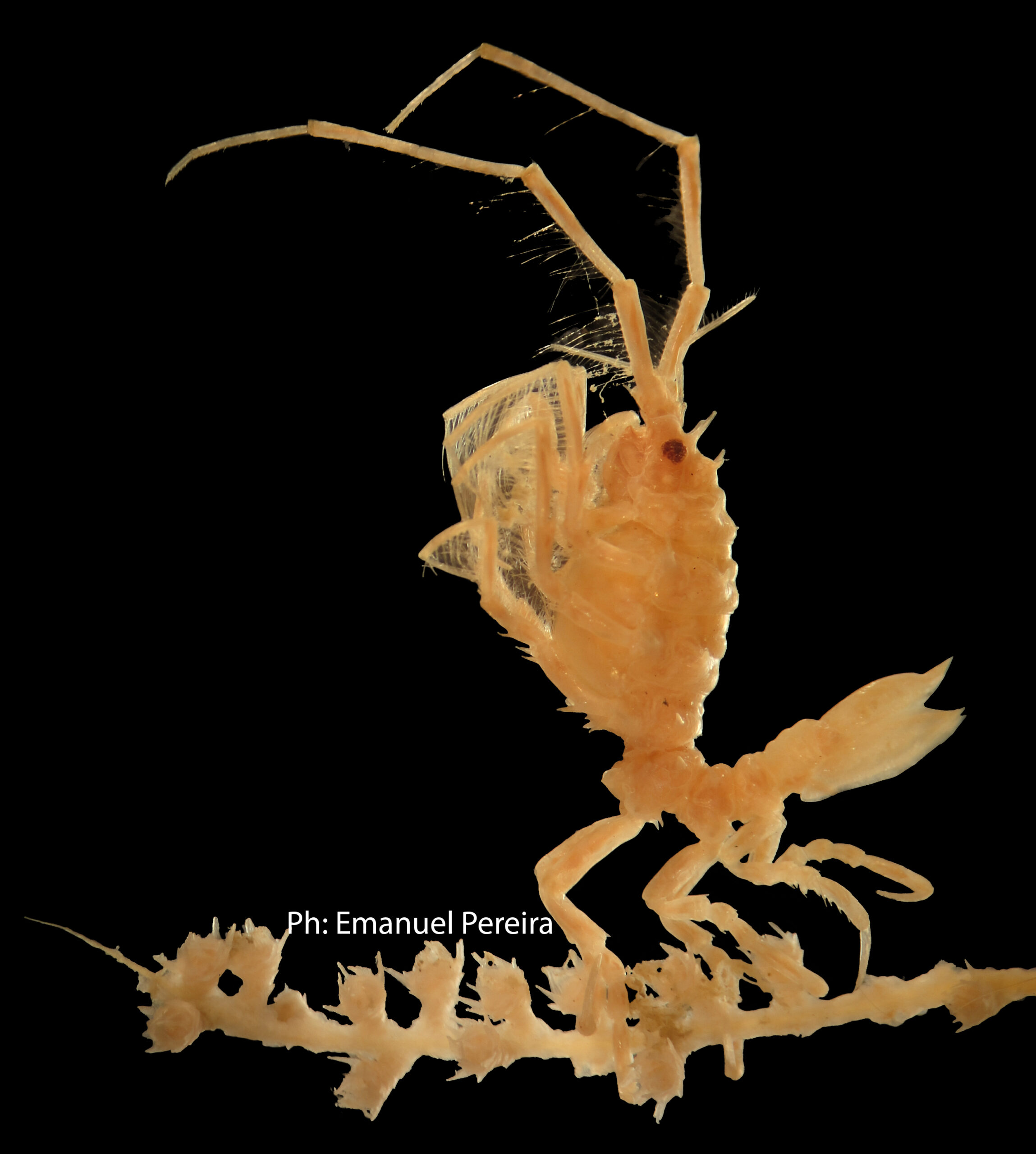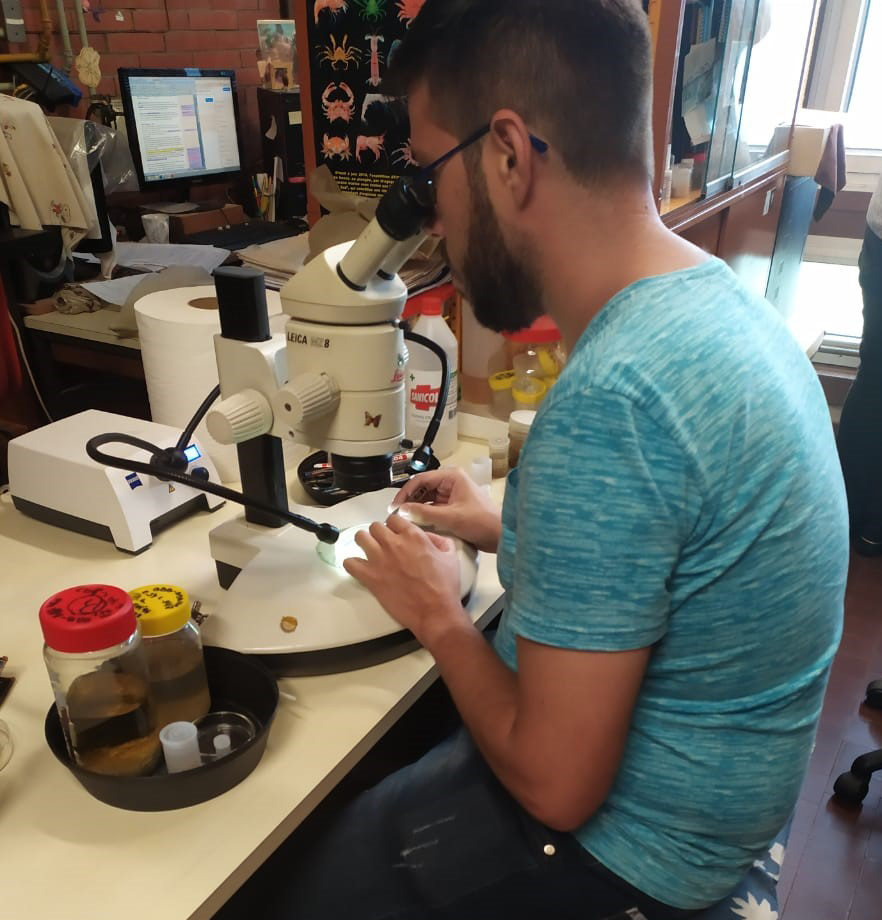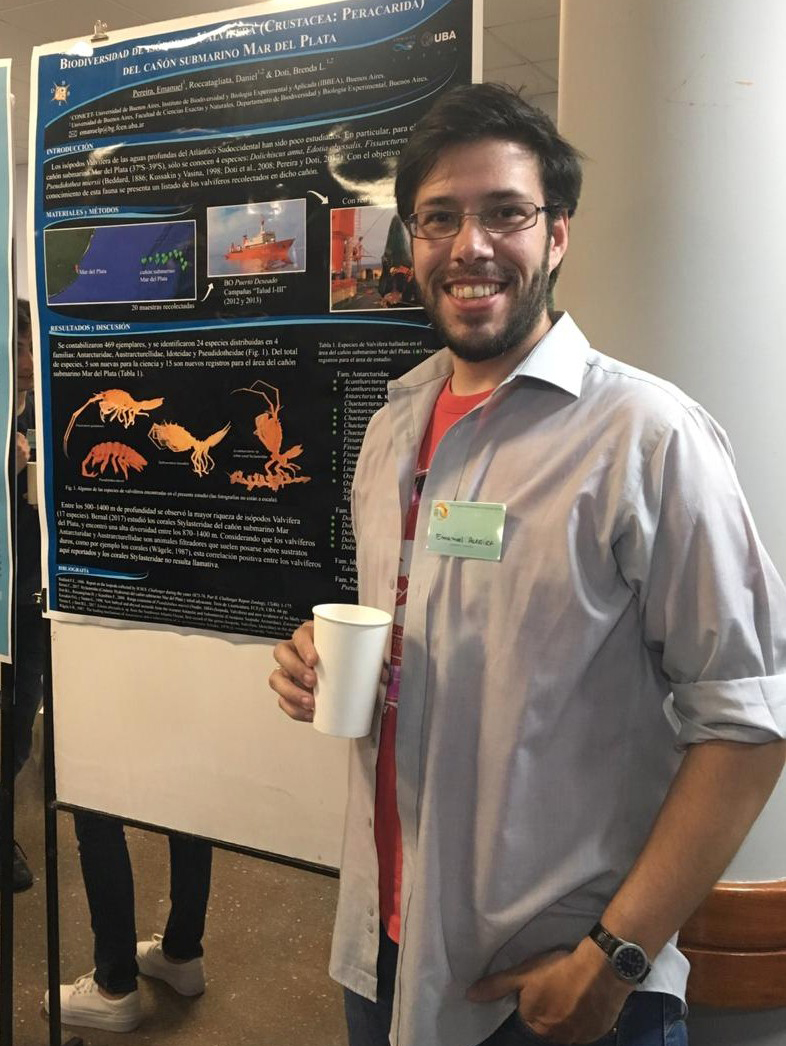Emanuel Pereira
Instituto de Biodiversidad y Biología Experimental y Aplicada (IBBEA), CONICET-UBA, Buenos Aires, Argentina
Researchgate; Twitter; IBBEA Profile; Contact: emanuelp@bg.fcen.uba.ar
What is your current research question and why are you interested in this topic?
I was interested in Marine Biology from a young age, I always love the ocean. Since I began my studies at the university, I have been attracted by the systematics and taxonomy of marine invertebrates, mainly in crustaceans. Since 2017, I have received a scholarship funded by the National Council of Scientific and Technical Research (CONICET) of Argentina, and my current research is focused on the study of the biodiversity of valviferan isopods from the deep southwest Atlantic Ocean. In particular, I am working on the taxonomy and biogeography of the Valvifera from the Mar del Plata submarine canyon.

What have been some challenges in your work or in studying the deep sea in general? Has your research turned out how you expected?
One of the most important challenges in my work has been the analysis of the samples obtained in the deep-sea. First, I have to sort the samples, which can take a long time (from weeks to months!). Then, I must identify the specimens sorted at the genus or species level. If there is a new species, I start the process to describe it: I dissect the appendages, I illustrate the general aspect, and I take some photographs. This all sounds very harsh, but it is also the funniest lab work.

Why is this work important to you and society as a whole?
This work is important to me because it means my first steps as a scientific researcher and the opportunity to improve my knowledge of the biodiversity and ecology of the deep-sea fauna of my region. I also hope that in the future the results of my research may be useful in making decisions and managing the conservation of the wildlife of the Southwest Atlantic.
Because we are such an international organization, can you describe what the deep-sea science community is like in your region?
Historically, the vast amount of information about the deep sea in the Southwest Atlantic Ocean originated from international expeditions and researchers (e.g. from Russia, Germany, and the United Kingdom). However, in recent decades, the Argentine RV Puerto Deseado has begun to explore the deep-sea waters of Argentina. During these expeditions, many samples have been taken with different gears, mainly with various sledges and trawls. This made it possible to increase the number of original articles published by national researchers, and thus improve the recognition of them among deep-sea specialists.
What is your current position (student, researcher, government, non-profit etc) and what do you like about your current role in deep-sea science?
Currently, I am a fourth year Ph.D. student at the Universidad of Buenos Aires, with a fellowship funded by the CONICET. The thing that I love about my current position is the chance to dedicate full time to develop my passion of the marine biology throughout the study of the marine fauna, the opportunity participate in expeditions, travel to other countries, interact and learn from specialists, and many other things…thus, I can say “I love my work!”
What advice could you offer to aspiring deep-sea biologists?
I think the most important thing if someone wants to study the deep sea is to have a true passion for the ocean and its components. In addition, it is necessary to have the initiative to dedicate a lot of time to perfecting yourself and being a good professional. Everything else will come in due time.
What is the biggest challenge or project you look forward to addressing in the future?
One of my biggest challenges is adding new methodologies and techniques to my current study, which could allow me to improve my research. Unfortunately, that implies a great effort for me today, due to the limitations of my country. Regarding the future, I would appreciate the opportunity to continue studying some aspects of deep-sea fauna. Additionally, I really want to include collaborations and good relationships with specialists from other countries and regions. Finally, I hope to be a good mentor for upcoming generations of marine biologists.
What is your favorite thing about the deep sea?
I love that everything about the deep-sea is new. New species, new morphologies, new interactions among the species, etc. It is a whole new world and I feel lucky to study and explore even a little of this wonderful world.

